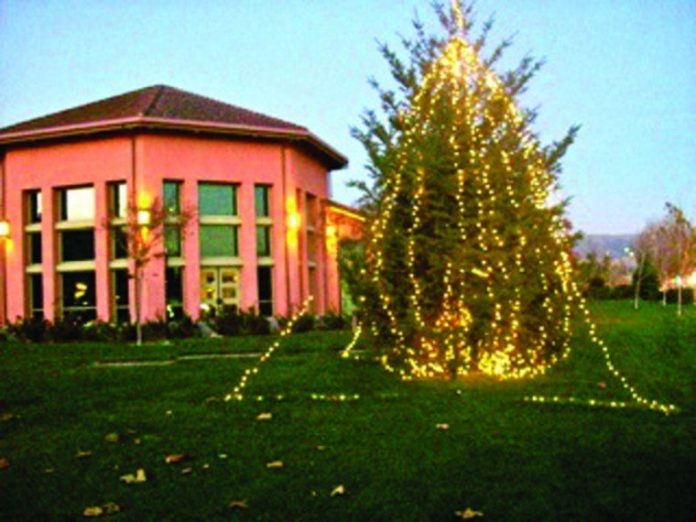Christmas is a supremely popular holiday in the United States. A
recent poll shows that 91 percent of Americans celebrate the
occasion. Santas, elves, decorated trees, babies in mangers and
seasonal music inundate us for weeks during the winter gloom. Yet
this holiday that symbolizes dedication to love and peace is rather
controversial, with arguments sometimes obscuring its message.
Christmas is a supremely popular holiday in the United States. A recent poll shows that 91 percent of Americans celebrate the occasion. Santas, elves, decorated trees, babies in mangers and seasonal music inundate us for weeks during the winter gloom. Yet this holiday that symbolizes dedication to love and peace is rather controversial, with arguments sometimes obscuring its message.
Some people attack Christmas for being unbiblical, and it is certainly true that Jesus was not born in Bethlehem any time around Dec. 25. Historians agree that this date was chosen by early church officials for political purposes, to supplant a pagan festival occurring around this time of year.
In the American colonies, different groups of Christians fought over whether the holiday should even be celebrated. In 1659 its observance was banned in Boston by Puritan leaders, who proclaimed, “The name of Christmas savors of superstition.” One minister asked, “Can you in your conscience think that our Holy Savior is honored by mad mirth, long eating, or rude reveling?”
Today there are groups who are offended by religious Christmas carols sung in public schools or nativity scenes placed on public property. They are opposed by others who decry the lack of these observances, complaining that store clerks have replaced the traditional “Merry Christmas” greeting with the more generic “Happy Holidays.”
In the Gospel story, the Magi travel to visit the newborn Baby Jesus, bringing him the traditional gifts of gold, frankincense and myrrh. Some call this the origin of our modern practice of exchanging gifts on Christmas Eve or day. In some countries gifts are exchanged on Jan. 6, The Epiphany, an ancient feast marking that visit in the stable that introduced Jesus to the Gentiles.
This brings up the biggest criticism of Christmas: commercialism. There are movies, books and websites devoted to criticizing this aspect of the holiday:
n “What would Jesus buy?” is Morgan Spurlock’s 2007 film chronicle of a cross-country bus tour by the Rev. Billy Tallen of the Church of Stop Shopping, his 35 singers and seven-piece Gospel band as they spread their message that shopping is harmful to the Christmas spirit. He interviews people along the way who admit to being addicted to shopping, including a teen who dreams of living in a mall.
n “Unplug the Christmas machine: A complete guide to putting love and joy back into the season,” by Jo Robinson and Jean Staheli, has been popular since its first publication in 1991. The authors give advice on how to make celebrations more spiritual and less materialistic by providing recipes, decorating ideas and other tips for creating “a joyful, stress-free holiday season.”
n “The Advent Conspiracy,” named for the traditional pre-Christmas season of penitent preparation, has attracted hundreds of churches in 17 countries with its motto: “worship fully, spend less, give more, love all.” Members are urged to spend less money on gifts for family and friends and to donate some of the money saved to charities. (www.adventconspiracy.com)
And yet, there is an irony to these sentiments this year. With the United States experiencing a weak recovery from recession and unemployment stuck at nearly ten percent, our economy needs consumer spending because it accounts for around 70 percent of economic activity. This creates sales and jobs; it’s not clear how to reconcile these polar opposites of frugality and extravagance.













